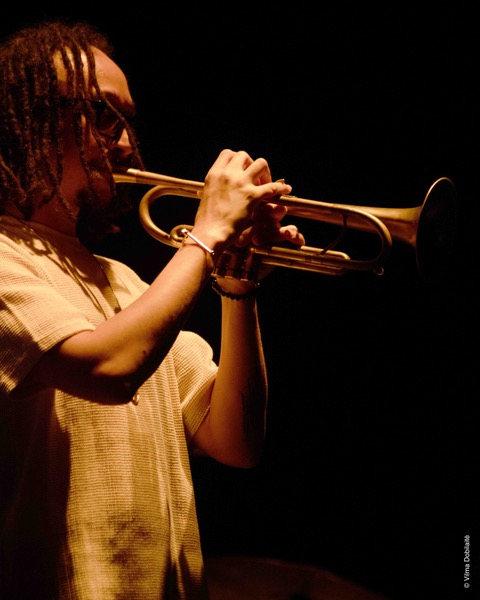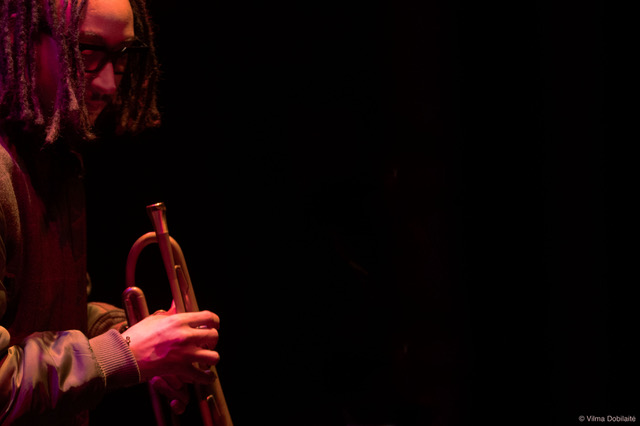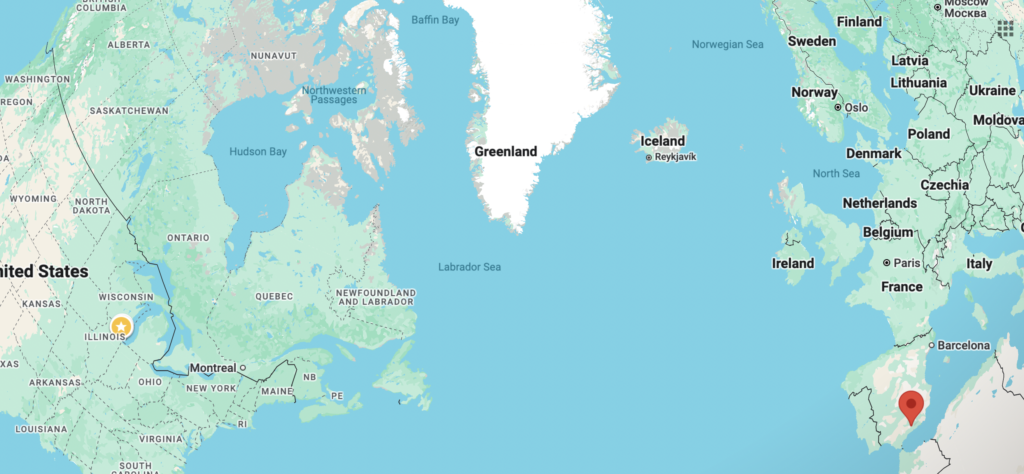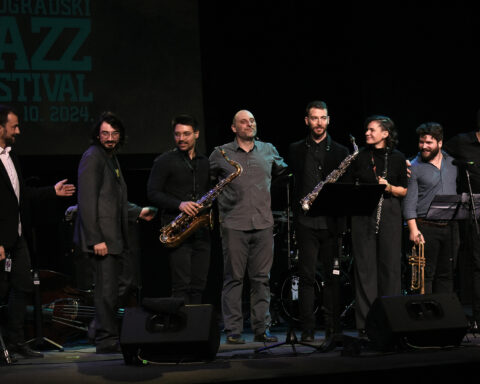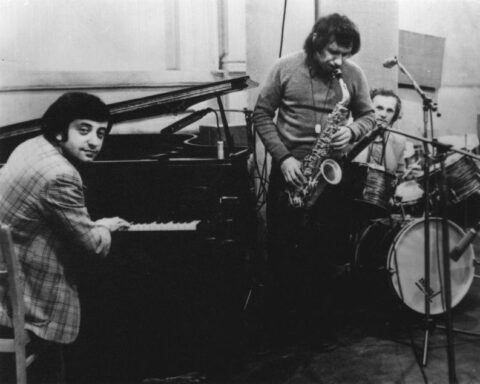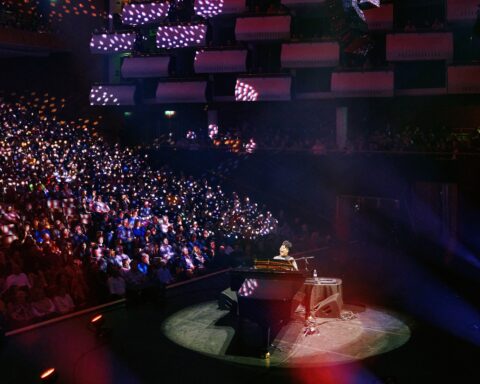Vilma Dobilaitė
Visionary trumpeter Theo Croker, grandson of the legendary trumpet master Doc Cheatham,
inaugurated the 44th Granada Jazz Festival with a breath of fresh air. By featuring his quartet the festival — directed by Mariche Huertas de la Cámara, and one of the most renown in Europe — continues to stand at the vanguard, presenting a range of styles.
This festival was first held in 1980. Since then it has hosted great names from the history of jazz, both Spanish and international: Miles Davis, Oscar Peterson, Charlie Haden, Art Blakey, Tete Montoliu, Dizzy Gillespie, Eliane Elias, Wayne Shorter, Gogo Penguin, Diane Krall, Herbie Hancock, Bebo and Chucho Valdés, Andrea Motis, etc. This beautiful city’s long-term relationship with jazz has raised its esteem on the music map, bringing excited jazz enthusiasts from far and wide every autumn to enjoy its historic heritage, excellent local cuisine, and extraordinary concerts. One of the most beautiful and iconic theaters in Andalusia, the Teatro Isabel la Católica, always hosts concerts of the main program, but the Festival extends beyond the theatre, with more than 70 concerts in bars and clubs in and around the city. Festival director de la Cámara has been part of the festival for 20 years.
This year’s festival sessions took place from Wednesday, November 6th, to Saturday, November 9, featuring performances by saxophonists Lakecia Benjamin and Bill Evans with his VansBand All Stars and Cuban composer-pianist Alfredo Rodríguez’s Trio. A flamenco jazz concert by Cadiz-born alto saxophonist Antonio Lizana was scheduled to be held at Teatro La Chumbera, overlooking the Alhambra.
The fest’s unique “jazz en parallel” programming, a collaborative initiative with private enterprises, employed 120 musicians in 30 events in 20 off-fest venues. In addition, throughout the festival, images from previous editions of jazz in Granada, captured by photographers Andrés Castillo, Pepe Torres, José Miguel Gutiérrez and myself were exhibited in a publicly displayed slideshow.
I was most taken with Croker’s music — whyich is for those who want to listen deeply and let themselves be carried away. His music is its own language, blending post-bop with funk, R&B, and elements of contemporary electronic music, blurring the boundaries of academic jazz genres and expanding its territory. It’s not just a series of melodies and rhythms; his music is a sensory experience that asks to be heard without judgment, allowing the trumpet’s vibration to flow, penetrate, and transform. In love with the sound of the trumpet and the variety within those sounds, their sweetness and roughness, Theo tells his story with soul and spirituality, translating a human voice into the vibrant notes of his trumpet.
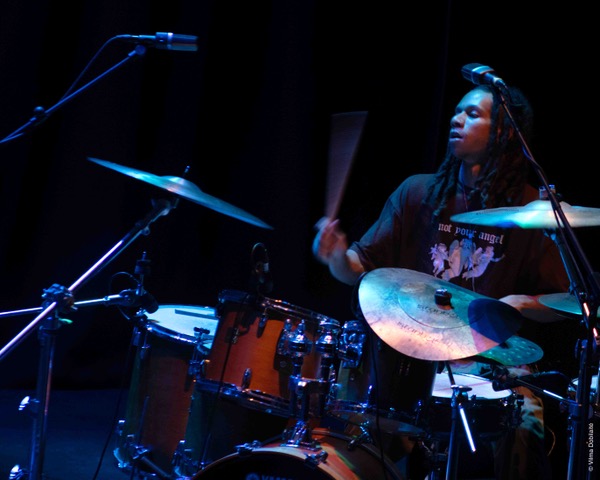

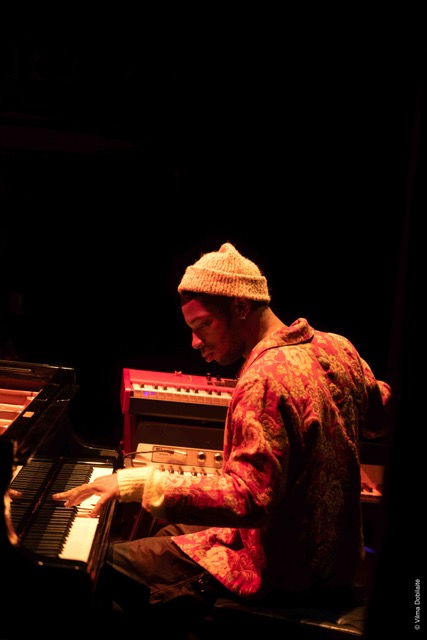
Jazz is the music for open minds. “Jazz is a conversation,” says Wynton Marsalis. And Theo Croker’s music is a continuous conversation with the history of jazz and its influences; it is an invitation to open one’s mind, to feel, and to experience the unknown. Listening to him is entering a space where rules fade away, leaving only the transformative power of sound. “Listen, don’t judge. Just hear it. Just listen, let go,” says Theo.
Personnel: Croker, trumpet, vox, laptop, effects; Idriss Fredik, keyboards; Eric Wheeler, double bass and electric bass; Miguel Russel, drums.

